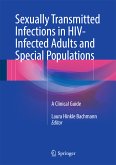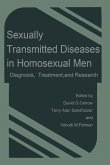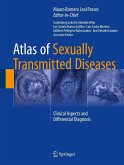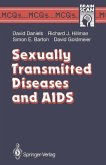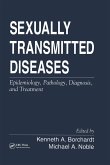Sexually transmitted infections (STI) continue to be a major cause of morbidity and mortality, both in developed industrial countries as well as in the developing world. Human immunodeficiency virus infections and the ensuing opportunistic infections are a major drain on the human and financial resources of many countries in the developing world and even with the availability of effective treatment the epidemic is not yet contained. Screening in developing worlds is difficult and there is a need for simple reliable cheap diagnostic methods that can be performed at the point of care, on the same day and by staff with limited training. Molecular biological methods are very attractive for the diagnosis of STI since a well defined range of pathogens is responsible for the infection. Diagnosis of Sexually Transmitted Diseases: Methods and Protocols strives to cover the full range of molecular testing for STI. Chapters cover a variety of topics such as aspects of DNA extraction from small volume samples or difficult tissues, simple, nested or multiplex PCR, use of duplex primers or other modifications of primers and PCR conditions, sequence analysis for genotyping, denaturing gel analysis, microarrays using liquid beads or microspheres and silicon nanoparticle-enhanced microcantilever detection of DNA. Written in the successful Methods in Molecular Biology(TM) series format, chapters include introductions to their respective topics, lists of the necessary materials and reagents, step-by-step, readily reproducible protocols, and notes on troubleshooting and avoiding known pitfalls.
Authoritative and easily accessible, Diagnosis of Sexually Transmitted Diseases: Methods and Protocols will be a valuable reference for the scientist looking to establish molecular methodologies for the diagnosis of STI tests intheir own lab.
Dieser Download kann aus rechtlichen Gründen nur mit Rechnungsadresse in A, B, BG, CY, CZ, D, DK, EW, E, FIN, F, GR, HR, H, IRL, I, LT, L, LR, M, NL, PL, P, R, S, SLO, SK ausgeliefert werden.



